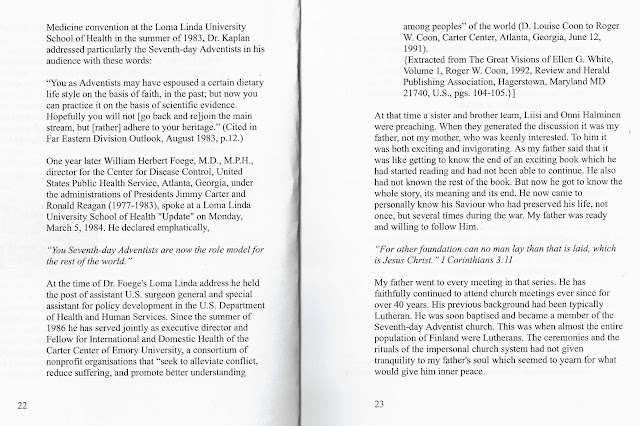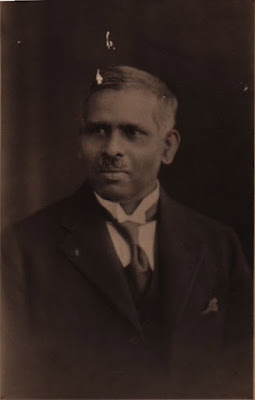I found this certificate from 1977.
Annikki won the First Prize in a Bangalore Exhibition cum Cookery Contest on "Wheat, Milk and Milk Products”.
Her entry was a vegetarian cake based on using yoghurt instead of egg.
It was truly and delicious.
Although we are ”non-vegetarians” this is a very broad term.
Annikki, on Christian religious grounds, does not eat, pork, prawns, as they are considered, by her religioius sect, as taboo.
Pigs, crabs, lobsters and prawns are considered as scavengers and, therefore, unhealthy for human consumption. (Other Christians claim that God stated that there is a contrary view in the Bible.)
More clearly the biblical prohibition can be stated as follows;
“ Prohibited foods that may not be consumed in any form include all animals—and the products of animals—that do not chew the cud and do not have cloven hoofs (e.g., pigs and horses); fish without fins and scales; the blood of any animal; shellfish (e.g., clams, oysters, shrimp, crabs) and all other living creatures that ...”
Annikki’s Christian religious order, The Seventh Day Adventists, are considered among the healthiest people of the world.
Here are extracts from her book published in 1994 “…for the hour of his judgement is come…” (The Holy Bible Revelations, 14:7).
I eat everything which I personally do not think disgusting! For instance, rats, snakes, and eels are not very appetising.
I prefer South Indian Vegetarian cuisine, some of which is common to Kerala, Tamilnadu, Karnataka, Andhra and Telengana.
Masala dosai served with sambar and coconut chutney
Idlis (rice cakes) served with sambar
Non-vegetarian, eggitarian, vegetarian, and vegan. These are four distinct dietary choices that people make based on their personal, religious, cultural, ethical, and health considerations.
While each category has its own unique characteristics, they all play a significant role in shaping individual lifestyles and the broader food industry.
Non-vegetarian, as the term suggests, refers to individuals who consume meat and animal products as part of their regular diet. This category includes people who enjoy a variety of meats, such as beef, pork, poultry, and seafood.
Non-vegetarian diets are commonly seen in many cultures around the world, where meat-based dishes form an essential part of their traditional cuisine.
Advocates of non-vegetarian diets often argue that meat provides essential nutrients, such as proteins and essential amino acids, that contribute to muscle growth and overall health.
However, it is important to ensure that the meat consumed is sourced from sustainable and ethical farming practices to minimize environmental impact.
But the word non-vegetarian is stretched by some. Especially in West Bengal in India where they eat fish and call it the “vegetable of the sea”.
My favourite fish dish is the special fried Pearl Spot fish (Malayalam: Karimeen).
Every time I land in Cochin/Ernakulam, I will go to the Grand Hotel restaurant and order this fish and have my full of it.
When we were little children and came to Cochin by train, we would go to a sea front hotel cum restaurant and order this fish and only then carry on our journey to Kottayam by car.
Here is the recipe for Masala Pomfret (which is used mored commonly that Pearl Spot fish) from the famous culinary expert of Kerala, the late Mrs. K. M. Mathew.
The eggitarian diet is a relatively recent term that emerged to describe a category of individuals who consume eggs but avoid other forms of animal meat. Eggitarians obtain their primary protein and nutrient source from eggs, all while abstaining from meat, poultry, and seafood.
This dietary choice allows individuals to enjoy a range of dishes that incorporate eggs while maintaining a balance between animal protein intake and ethical considerations.
Some eggitarians may choose this diet due to personal taste preferences, religious beliefs, or environmental concerns associated with large-scale livestock farming.
Vegetarianism involves the exclusion of meat, poultry, and seafood from one's diet. However, vegetarians still consume products derived from animals, such as dairy and eggs.
This dietary choice encompasses various subcategories, including lacto-vegetarian (consuming dairy but avoiding eggs), ovo-vegetarian (consuming eggs but avoiding dairy), and lacto-ovo vegetarian (consuming both dairy and eggs).
Many vegetarians adopt this lifestyle for a combination of reasons, including animal rights, environmental concerns, and health benefits. Numerous studies have suggested that well-planned vegetarian diets can provide all the necessary nutrients, vitamins, and minerals required for a healthy lifestyle, while also reducing the risk of certain chronic diseases.
Many vegetarians will avoid eggs during their religious festivals, such as Pongal and Diwali.
Recently we were invited to a truly wonderful Gujarathi feast by a couple in Oulu, making one wonder with such and array of great vegetarian dishes all over India, why it is necessary at all to be non-vegetarian.
Veganism is perhaps the strictest form of plant-based diet and lifestyle, excluding all animal-derived products. Vegans not only avoid meat, poultry, seafood, and eggs but also eliminate dairy, honey, and any other products that have an animal origin or involvement.
The primary reasons people choose veganism are ethical concerns for animal rights, environmental conservation, and personal health. By abstaining from animal-derived products, vegans aim to improve animal welfare, reduce carbon footprints, and promote a cruelty-free lifestyle. While ensuring proper nutrition on a vegan diet may require more careful planning and supplementation, many vegans assert that their decision brings various health benefits, including lower cholesterol levels, reduced risk of heart disease, and better weight management.
Non-vegetarian, eggitarian, vegetarian, and vegan diets represent an array of dietary choices with unique characteristics and motivations.
Each category reflects personal preferences, cultural backgrounds, ethical beliefs, and health considerations. Understanding and respecting these different dietary choices is crucial as it promotes inclusivity and allows for a more diverse and sustainable food culture.
One persoanl note is that many faiths also have different forms of fasting.
Christians fast during theperiod of Lent, between Ash Wednesday and easter, as a memory to te fact that CHrist fasted in the wildrenerss for 40 days when he was repeatedly tempted by Satan.
Christians do not actually fast during that period but give up some of their favourite food and the money saved is given to charity.
The Muslims fast during the period of Ramzan, forom morning to evening, somer not even swalloewing therir own saliva.
Other religions do fasting in relation to the religious festivals associated with them, ands most are also associated with some health issues.
Coming back to Annikki's religious sect, they are not only vegetarian, but also do not consume coffee, tea, alcohol or any harmful drugs.
There is a more radical form of Christianity which believes that God will take care oif everything and do not even go to doctors!
Ultimately, the decision to adopt any particular diet and life style is a deeply personal choice that influences not only individual health but also broader environmental and ethical concerns.

















































